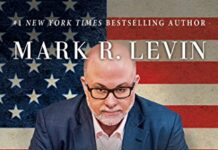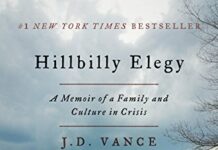
Ebook Info
- Published: 2017
- Number of pages: 240 pages
- Format: Epub
- File Size: 2.18 MB
- Authors: Sheryl Sandberg
Description
From Facebook’s COO and Wharton’s top-rated professor, the #1 New York Times best-selling authors of Lean In and Originals: a powerful, inspiring, and practical book about building resilience and moving forward after life’s inevitable setbacks.
After the sudden death of her husband, Sheryl Sandberg felt certain that she and her children would never feel pure joy again. “I was in ‘the void,’” she writes, “a vast emptiness that fills your heart and lungs and restricts your ability to think or even breathe.” Her friend Adam Grant, a psychologist at Wharton, told her there are concrete steps people can take to recover and rebound from life-shattering experiences. We are not born with a fixed amount of resilience. It is a muscle that everyone can build.
User’s Reviews
Amazon.com Review An Amazon Best Book of April 2017: After the unexpected passing of her beloved husband, Facebook COO and bestselling author of Lean In, Sheryl Sandberg, feared that she and her children would never find joy again. Fortunately this fear was unfounded. Option B: Facing Adversity, Building Resilience, and Finding Joy–co-authored with psychologist and friend Adam Grant–shows you how Sandberg, and many others who have overcome a wide range of profound hardships, triumphed over tragedy. The book posits that it’s helpful to think of resilience like a muscle, one that atrophies in the calm between the storms of our lives. But there are things we can do to develop it, so we’re better prepared when adversity strikes. In America, culture can put a kink in this plan. Processing a painful event can be hindered when you’re wired not to talk about it. We all know that when someone asks how we’re doing, the expected response is “fine,” no matter if we’ve just lost a limb, or had a cancer scare. We will grin, and we will bear it, and we will go back to work too soon and burst into tears in the copy room when confronted by a malevolent stapler (or maybe that’s just me). Recently, Sandberg helped to enact a new employee benefit at Facebook: 20 days of paid bereavement leave, twice the amount that was offered previously. As she explains in Option B, it’s the humane thing to do, and it also makes good business sense; compassionate companies engender more loyal employees. In this way, Option B is more than a little revolutionary. It challenges us to change systems that don’t always take our humanness into account. And that’s something we need to do on a personal level as well. None of us are immune to misfortune and heartbreak. We need to cut ourselves some slack when times get tough, and, as Sandberg discovered, flip the golden rule: When a loved one is in distress, instead of treating them how you would want to be treated, consider how they want to be treated, which may be quite different. Option B starts an (oftentimes) uncomfortable but important conversation. If we lean in to the numerous lessons it has on offer, there’s a lot more joy to be found. –Erin Kodicek, The Amazon Book Review Review “A remarkable achievement: generous, honest, poignant. Option B reveals an aspect of Sandberg’s character—her impulse to be helpful. This is a book that will be quietly passed from hand to hand, and it will surely offer great comfort to its intended readers . . . The candor and simplicity with which she shared all of it is a kind of gift . . . Helpful, moving.” —Caitlin Flanagan, The New York Times “The overwhelming message of this book is: We’re a lot more resilient than we think we are. But there are things we can do for ourselves, and for other people who are hurting, that will really allow that resilience to bloom.” —Katie Couric “Sandberg is wise and honest and funny and practical in ways that are likely to stay with the reader. Her deeply personal book is more than memoir; interspersed with devastating scenes are equally powerful strategies for coping when your world has gone tilt.” —Tracy Grant, The Washington Post “I recommend this inspiring book to everyone around the world. None of us can escape sadness, loss, or life’s disappointments, so the best option is to find our Option B.” —Malala Yousafzai, Nobel Peace Prize winner “Option B is as hopeful as it is heartbreaking. Here are stories of sometimes unimaginable pain and loss, but also of how human beings nonetheless have the capacity to endure and even thrive. This book is not just an absorbing read. It also provides lessons that everyone needs to learn.” —Atul Gawande, author of Being Mortal “Sheryl writes about her own heartbreaking experience with a rare honesty. Then she and Adam translate her personal story into a powerful, practical guide for anyone trying to build resilience in their own lives, communities, and companies. It’s hard enough to resonate with readers. It’s even harder to help them take concrete steps toward a better future. Option B does both.” —Bill and Melinda Gates, co-chairs of the Bill & Melinda Gates Foundation “Thoughtful, insightful, and compelling. Both individually and collectively, we all need to understand the power of rehabilitation, recovery, and redemption if we are to overcome adversity. This incredible book doesn’t avoid the loss and tragedy we all sometimes encounter, but it is animated by a resolve that is both inspiring and instructive.” —Bryan Stevenson, author of Just Mercy and founder of the Equal Justice Initiative “Illuminating, original, and deeply inspiring, Option B is one part riveting memoir, one part heal-your-heart boot camp, one part stories of others who learned to thrive in the face of profound loss: a practical, vital contribution to the literature on loss and resilience.” —Cheryl Strayed, author of Wild “Like her debut volume, Sandberg’s Option B is an optimistic book, even if one riven with sorrow. She argues that after adversity and loss, there is an opportunity for ‘post-traumatic growth.’ Thus the book is in part a moving memoir.” —Rebecca Mead, The New Yorker “Sandberg’s new book is tough, full of the raw, painful emotions . . . Option B [has] advice for people who are grieving. But it’s also a book for nearly everyone—people who may not know what to say or do in the wake of a tragedy. It’s also a deeply optimistic book, framed around the question, what’s next?” —Rebecca J. Rosen, The Atlantic “Intimate, personal . . . Within Option B there are lessons for leaders who want to make organizations more resilient, help employees recover from a loss—or crisis—and create workplaces that are more prepared to deal with failure.” —Jena McGregor, The Los Angeles Times “Admirably honest, optimistic . . . Sandberg shares a great deal of herself and what she has learned. At its core the book helps those who have been felled by despair: a guide both for those who have directly suffered loss and for those who are close to people who have.” —The Economist “Though it was inspired by a deeply personal tragedy, Option B details Sandberg’s experience and the topic of resilience more broadly, and is filled with insight that is useful for anyone overcoming loss or failure.” —Brad Stulberg, New York Magazine “Science of Us” “Being among the most powerful women in the world didn’t spare Sheryl Sandberg from the sudden death of her husband, not quite two years ago. Option B is at its best when pinpointing specific tips for coping with overwhelming grief. Sandberg writes how she created new rituals, such as taking a moment at dinner each evening to express gratitude for something positive that day, and declaring ‘small wins.’ Day by day, the book says, these small victories can become building blocks to a return to emotional equanimity.” —Diane Cole, The Wall Street Journal “Option B tackles a universal subject, and offers up a path to happiness based not on fantasies of immortality but on the reality of the sorrow of life itself . . . The book is also a practical guide for handling grief and adversity. With her coauthor Grant, Sandberg lays out anecdotes and research on perseverance and resilience . . . Finding growth and ultimately joy is the project of Option B. Sandberg makes a point of emphasizing this aspect.” —Emily Peck, The Huffington Post“Part memoir and part operating manual for surviving the hardest moments in our lives, Option B has essential wisdom . . . This book has the power to help heal. What’s doubly impressive about Sandberg’s decision to write it: she must have known it required opening herself up to feedback that far exceeds the usual literary criticism.” —Rebecca Ruiz, Mashable “Option B chronicles Sandberg’s devastating loss, her grief and how she emerged from it with a new perspective on life. The most affecting parts of the book recount not just Sandberg’s grief, but that of her children . . . ‘Tragedy does not have to be personal, pervasive or permanent, but resilience can be,’ she writes. ‘We can build it and carry it with us throughout our lives.’” —Associated Press “Sandberg is helping people find resilience and meaning in the face of adversity. She says there isn’t one way to grieve, but she’s learned that processing your feelings and not blaming yourself is an important part of recovery. . . Facing adversity, Sandberg says, is a part of daily life from childhood to adulthood.” —Queenie Wong, The Mercury News “Moving . . . A memoir of the loss of a husband and finding a path forward beyond the grieving process. Writing with Grant, a highly rated professor at Wharton, Sandberg explores how to weather the storm of grief, applying concrete skills—in addition to more complex theories of psychology about how to find meaning in life-changing circumstances. A book that provides illuminating ways to make headway through the days when there doesn’t seem to be a way forward.” —Kirkus “Helpful and hopeful Sandberg draws on her own pain around the sudden death of her husband, and shares what she has learned about resilience with a tone that is raw and candid. Those suffering as well as those seeking to provide comfort should find both solace and wisdom” —Publishers Weekly
Reviews from Amazon users, collected at the time the book is getting published on UniedVRG. It can be related to shiping or paper quality instead of the book content:
⭐ I’m not finished but I wanted to chime in right away. I’m a Licensed Professional Counselor, part-time teacher at Colorado Christian University, and published author. I live in the Columbine neighborhood and worked with police and firefighters at Ground Zero so healing from trauma is of huge interest to me.I’ve spent the last four years researching and writing about the powerful topic of Posttraumatic Growth. (I wish I could tell you the title of my book but it remains in the hands of agents and publishers. I hope it gets to be born someday.)In the meantime I want to shout hurray and yeehaw on almost every single page of this book.The smashing point of this book: All people can heal, and some people are even launched to a more meaningful place after experiencing trauma; clinical research shows how.Growth is actually more common than the much better known and far better studied posttraumatic stress disorder (PTSD). The challenge is to see the opportunity presented by seismic events. After trauma, people need hope. In the aftermath of the tragedy, people need to know there is something better.Following a traumatic experience, most people experience a range of problems: Trouble sleeping, nightmares, agitation, flashbacks, emotional numbness, avoiding reminders of the traumatic event, anxiety, anger, guilt, hyper-vigilance, depression, isolation, suicidal tendencies, etc. Until recently the entire discussion of the human response to trauma ended with a summation of the hardships incurred by trauma. But as it turns out, a traumatic event is not simply a hardship to be overcome.Instead, it is transformative.Trauma survivors and their family and friends need to know there is another side to trauma. Strange as it may sound, half of all sufferers emerge from the trauma stronger, more focused, and with a new perspective on their future. In numerous studies, about half of all trauma survivors report positive changes as a result of their experience. Sometimes the changes are small (life has more meaning, or the survivor feels closer to loved ones) and other times they are massive, sending people on new career paths. The worst things that happen to us might put us on a path to the best things that will ever happen to us. A brush with trauma often pushes trauma survivors to face their own mortality and to find a more meaningful and fulfilling understanding of who they are and how they want to live.To be clear, growth does not undo loss, and it does not eliminate adversity. Posttraumatic growth is not the same as an increase in well-being or a decrease in distress. And even for those who do experience growth, suffering is not mitigated in the aftermath of tragedy. Growth may make the pain meaningful and bearable, but it does not deny the hurt.For decades, nearly all the psychological research into trauma and recovery has focused on the debilitating problems that people face, but Option B speaks of the paths people can take to heal from their experiences and discover new meaning in their lives.Just this morning a blog reader wrote to me and said she feels stuck because of her father’s suicide many years ago. The first thing I did was tell her about your book.I have been, and will be, recommending this book to friends and clients.Thank you Sheryl and Adam.
⭐ At the beginning of this book, I felt grateful to Sandberg and Grant for their clear articulation of how we as a culture fail those who are suffering by not talking to them about their adversity. Early chapters provide some ideas about how to bring up difficult situations and how to offer concrete, realistic help instead of fuzzy, generalized help. Later chapters on raising resilient kids and failing at work provide some good recommendations for building resilience, but it’s unclear to me what that kind of resilience has to do with helping people bear the intense emotions of grief and trauma.The rest of the book was shockingly awful. Sandberg and Grant pushed way beyond basic recommendations for supporting grieving people into promoting their strategies for “overcoming” adversity as universally helpful. Their resilience strategies are so ill-advised for normal grieving and traumatized people that I can not only not recommend this book, I also need to strongly speak out against it.As a person who was suddenly widowed 25 years ago, when my son was an infant; and as a psychotherapist who has helped people with grief and trauma for over 20 years, I’m horrified and insulted by the way Grant misapplies to grief and trauma his business-based positive-psychology strategies—strategies that are intended to help people with performance anxiety, not mortal suffering.I know from experience that untimely loss is brutal, and I don’t fault Sandberg for submitting to Grant’s insistence that she follow his prescriptive exercises, especially because he frightens her by telling her that if she continues to feel her painful feelings, she’ll be “trapped” in negative emotion and her children “won’t recover.” Of course she wants her kids to be okay. So she uses his change-your-thinking exercises to momentarily stanch her wrenching pain. But in the long run, these strategies don’t get rid of grief’s intense feelings. Instead, Grant’s strategies sidestep anguishing emotions and push them underground where they fester and cause problems—years later and in future generations.I think it was irresponsible of the publisher to allow two unqualified people to make these damaging universal suggestions to grieving and traumatized people. Sandberg is a brand-new widow. (Whether she and the general public want to believe it or not, two years into widowhood is very early.) Though I would have supported her writing a memoir of her early widowhood; I think it’s naïve for her to advise anyone on how to deal with grief and trauma for the long haul.And Grant is a BUSINESS professor. He has zero training for working with people who are going through intensely emotional experiences, and no knowledge of up-to-date emotion science. The strategies he foists onto Sandberg emerged from research on learning and performance, not on dealing with overwhelming emotion. His cognitive-behavioral tools coerce Sandberg out of her pain and force her to prematurely and frantically chase after joy, gratitude, and meaning. These healing emotions don’t need to be hastily imposed onto people. Joy, gratitude, and meaning naturally arise when grieving people are given time and help to bear their intense emotions.Though Sandberg was able to harness her strong achievement-drive to employ Grant’s tools for dominating her grief and leaping toward joy, all of the tools spring from a hijacking of a narrow theory about the single personality trait of resilience for willfully overpowering anguish. Throughout the book, Sandberg and Grant use terms like overcome adversity, triumph over sadness, and regain control. These warlike terms reveal that they view grief as a monster that we should fear and flee from, or battle and fight against, and to ultimately prevail over. Though ultimately fear-based, this ego-driven, conflict-filled story preserves the beloved American illusion that even in the face of horrific tragedy, we can acquire weapons of resilience in order to dominate the grief monster and bounce back to normal in just over a year.When distressing grief reactions occur in a society like ours that denigrates long-lasting and intense grief responses, grievers can end up isolated, ashamed, and ill. They believe, “Something’s wrong with me. I need to make this stop.” “If I were resilient, I wouldn’t be so overwhelmed.” These beliefs are invalidating and they perpetuate a harmful fear of grief, and Option B throws gasoline on the flames of these beliefs.Emotion science clearly shows that when we are plunged into intense emotional states such as grief, we need to feel understood and we need to be helped to express our emotions in a way that doesn’t overwhelm us. Grant never soothes Sandberg, never offers her kindness to help her bear and express her grief. Instead, he responds to her sadness, despair, or guilt with stern warnings that she’s “delaying her recovery” and “delaying her kids’ recovery.” His strident approach leaves me feeling fiercely protective of all grieving people, including Sandberg. I’ve already seen clients having normal grief responses who feel ashamed and afraid of their own emotions when they compare themselves to Sandberg.I dislike the way resilience—as sold by Option B—is making grievers feel bad. I’m angry that Option B is turning resilience into a new hurtful grief myth that grievers have to fight against in order to heal, a myth that makes grievers feel ashamed and frightened if they can’t bounce back immediately, and if they don’t feel like prematurely striving toward joy when they’re honorably slogging through toward real healing.
⭐ Sandberg’s genius and tragedy bleed through the pages of Option B. She brings insight, compassion, organizational brilliance, and wisdom from amazing friends into an important conversation. In her interviews, she makes it clear that stregthening resilience from huge loss is possible for those who have experienced loss. AND increased resilience is even possible for those who have not yet experienced loss. And this is where the book goes off the rails. Sandberg’s desire to make this book universally helpful, tilted it’s narrative to be problematic for many who have recently lost a loved one. I bought eight copies of Option B for a “Grief Care and Support Group.” Those who suffered loss over four years ago thoroughly enjoying the wisdom of Option B. It resonated with what they learned from the loss of children and spouses. Those who suffered loss within a year did not return to discuss the book again. Two who did not return, said Option B was not helpful and they would stay away from the group until we finished the book. I think it was hard for two women who had lost spouses in their 60s an 80s to hear about someone who was surrounded by amazingly caring people including a mom who would help her cry to sleep at night and a brother who called every day for six months. Sandberg confesses that she has a unique amount of resources that most people do not enjoy. But she was referring to economic resources. The resources that were most valuable were (and are) the incredible human web of family and friends. For some who have lost a spouse later in life, some of Sandberg’s stories unintentionally reminded them of how incredibly alone they are. I think trying to meet the needs of everyone (those grieving AND those yet to grieve), occasionally distorted this book of wisdom into a book of pain for those who need it the most. And I believe that for many people who have just lost someone, Option B is an option they should avoid.
⭐ I’m sorry, but I really disliked this book. I really liked her previous book, but this one not so much. A rich and famous person with a huge support network telling ordinary people, some of who are not only struggling emotionally but also financially, how to get over it and become a better person! Resilience is bs in my opinion. You either have supportive people around you or you don’t. If you do, you’re able to resilient and if you don’t, good luck. It’s not something you can get from a book.
⭐ This is a fatuous book written from the perspective of a person whose privileges are so great in this life, losing her husband is an emotional inconvenience. Had she not held such a societal position in the first place, it would likely never have been published, and certainly would not have been read by more than a dozen people.
⭐ I really wanted to like this book, but here’s how it disappointed me:- It’s not about resilience, it’s about how Sheryl Sandberg process her grief.- As a result, it’s a sad — very sad book — a downer — but not particularly helpful.- I wanted to learn more about resilience. The book would have been more universal if more of Adam Grant’s research had been cited, discussed, etc. Instead, it felt like a cheap literary device to make Sheryl seem more credible.- She still speaks from a woman of privilege — She must have mentioned at least 5x that her mother slept next to her in her bed each night for a month. Then her sister in law took over. Very few of us would have a mother who could do that. Maybe I’m jealous. My mom’s dead. But even still, not sure my mom would have done this for me even thought I know she loved me.- When I read that after 4 months, Sheryl was getting excited about flirty emails from guys, it made me feel that she was not so much a loving, despondent widow, but a needy one.Why then did I give it 2 stars instead of 1? Because I like her. She has a very authentic voice, her Facebook posts were admirable, she’s made Facebook a kinder, more gentler place, and most of all, I can’t imagine losing my husband. I feel for her.
⭐ I bought this book after hearing from a friend of a friend how helpful it could be for me. I wasn’t able to get beyond the first 34 pages without several references to politics and opinions on social injustices. I just wanted to read how a woman who lost her husband dealt with loss. The very little I read was all over the board, not focused in the least. Not sure who this book is aimed at helping.
⭐ “Death ends a life but it does not end a relationship”Once in a while there comes a book which kind of shakes you up. This is what this book has done to me. This is a brave confession by Sheryl Sandberg on how her & her kids life changed when she unexpectedly lost her husband while on a vacation & how she has learned to cope with that grief …. I cannot stop myself from using the adjective “brave” for Sheryl, considering how she has laid herself out there in this book so that others in similar situation can learn from her & yet others can learn to appreciate the people who are still in their lives, who we end up taking for granted …. there is one very beautiful line that Sheryl has written in this book which will stay with me forever, she says, “Death ends a life but it does not end a relationship” …. for the sake of her two wonderful kids & her own self, Sheryl has learned to cope with her grief …. #OptionB
⭐ This book was chosen by my book club. There was so much hype about this book, so I was expecting a well written book with some kind of profound breakthrough message. Alas, I found it an attempt at creating yet another self help book based one family’s personal tragedy.Setting aside that even self help books written by mental health professionals are in fact unhelpful, imagine a self help book written by a lay person who attempts to impart pearls of wisdom based predominantly on their own personal experience and input from a strong network of acquaintances.The book went in multiple directions with musings on everything from race and discrimination to self compassion to personal vignettes.
⭐ After my son was killed by a drunk driver (he was 22 years old), I had read so many books on grief and loss. All that really did was confirm that all the pain and despair that I was feeling was correct. No real help or skills to stop the repeated, daily trauma I was feeling. I tried talk-counseling who recommended Compassionate Friends (support group). Again, not a help/skill to move through. Prescription meds came next. Basically just flat-lined all my emotions. Not the best way to live, especially when I have a job that requires me to have empathy and advocate for sexual abuse survivors. I stumbled on this book. Her loss was her husband, but the trauma is the same. I then realized that in extreme trauma (of any type) we react similar – textbook type reactions. This small book is so full of spot-on advice, no cliches or mystical beliefs. Resilience is key. She really could not have said it better and I’m so grateful I read this book. I recommend it to my friends, family and clients.
Keywords
Free Download Option B: Facing Adversity, Building Resilience, and Finding Joy in Epub format
Option B: Facing Adversity, Building Resilience, and Finding Joy Epub Free Download
Download Option B: Facing Adversity, Building Resilience, and Finding Joy 2017 Epub Free
Option B: Facing Adversity, Building Resilience, and Finding Joy 2017 Epub Free Download
Download Option B: Facing Adversity, Building Resilience, and Finding Joy Epub
Free Download Ebook Option B: Facing Adversity, Building Resilience, and Finding Joy





